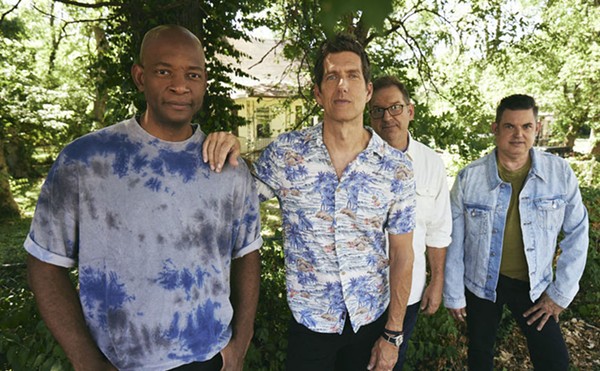Produced by Rob Dickins, who tried to restore Stewart's rock and roll reputation with 1998's earnestly youthful When We Were the New Boys, Human sounds contrived, despite work by some premium session players -- among them, bassist Pino Palladino (who's played with Paul Young, Richard Ashcroft, and Eric Clapton), the Time's guitarist Jesse Johnson, and sometime Pretender axeman Robbie McIntosh. Since the '80s, Stewart has been most at home with hard rock and ballads, but insecure on middle ground. His producers have let him pull his punches, marketing him as a safe balladeer with a rock frisson. That may be why the desultory reggae "If I Had You," complete with languid swing and deeply clichéd lyrics, seems both strenuous and showy. All Too Human might be a better tag for this effort, which was recorded on various continents, then cobbled together by Dickins. As it stands, Stewart's debut for a label synonymous with rhythm 'n' blues and soul in the '50s and '60s, and with hard rock in the '70s and '80s, seems a marriage of inconvenience -- not a new beginning.
Sergio's
1903 Ford Drive, University Circle
Lunch, Monday through Friday, 11:30 a.m.
to 2:30 p.m.; dinner, Monday through
Thursday, 5:30 to 9 p.m., Friday and
Saturday until 11 p.m.
216-231-1234
[
{
"name": "Ad - NativeInline - Injected",
"component": "38482495",
"insertPoint": "3",
"requiredCountToDisplay": "5"
},{
"name": "Real 1 Player (r2) - Inline",
"component": "38482494",
"insertPoint": "2/3",
"requiredCountToDisplay": "9"
}
]
It's sad when your voice is so expressive and you have so little to say. On Human, his first record for Atlantic Records, Rod Stewart runs through a collection of lackluster tunes, spanning the nonsensical namecheck "Charlie Parker Loves Me," the Journey-esque first single "I Can't Deny It," a clutch of cool soul tracks, and the oddly lunky -- and appealing -- "Smitten," a song by Canton native Macy Gray. However, just because some wag told Stewart that Gray sounded like a love child of his with Billie Holiday, that doesn't guarantee quality or pedigree. Despite the authentic sultriness and groove of "Soul on Soul" and "Loveless," and the intermittent guitar power Slash lends to the title track, this album sounds like a committee effort -- especially with tracks such as "It Was Love That We Needed," a ringer for Van Morrison's "Crazy Love."
SCENE Supporters make it possible to tell the Cleveland stories you won’t find elsewhere.
Become a supporter today.
Scroll to read more Music News articles
Newsletters
Join Cleveland Scene Newsletters
Subscribe now to get the latest news delivered right to your inbox.











